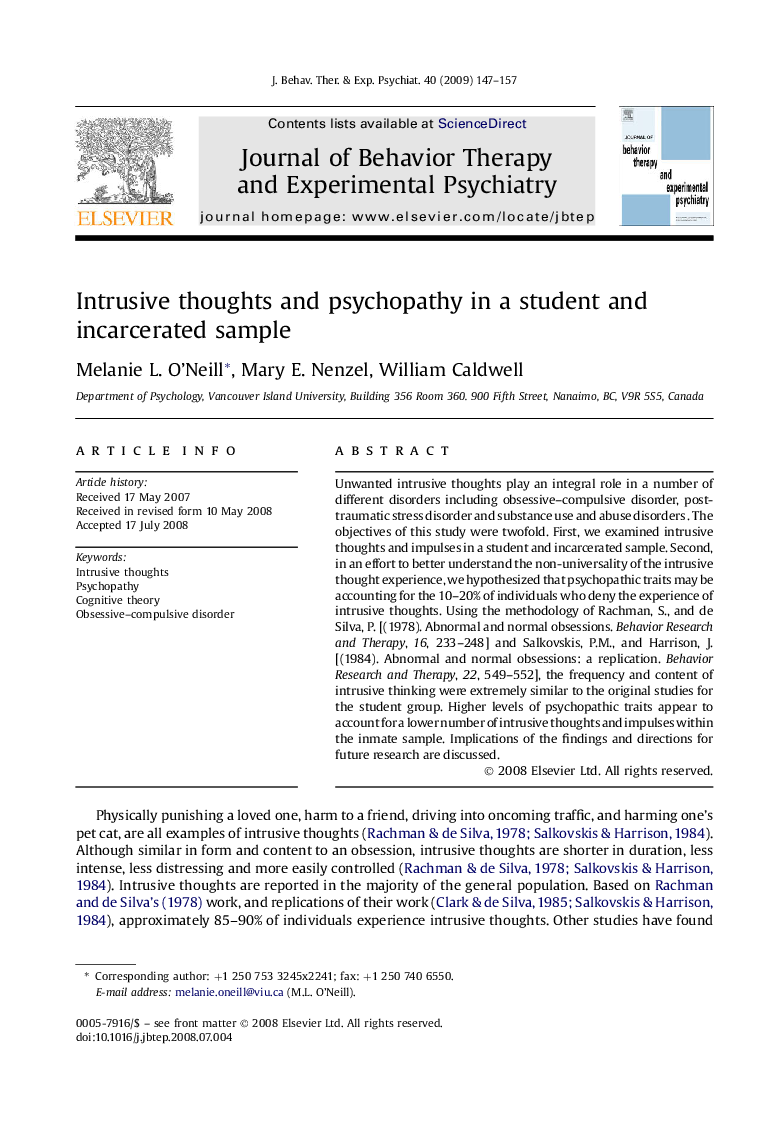| Article ID | Journal | Published Year | Pages | File Type |
|---|---|---|---|---|
| 910629 | Journal of Behavior Therapy and Experimental Psychiatry | 2009 | 11 Pages |
Unwanted intrusive thoughts play an integral role in a number of different disorders including obsessive–compulsive disorder, posttraumatic stress disorder and substance use and abuse disorders. The objectives of this study were twofold. First, we examined intrusive thoughts and impulses in a student and incarcerated sample. Second, in an effort to better understand the non-universality of the intrusive thought experience, we hypothesized that psychopathic traits may be accounting for the 10–20% of individuals who deny the experience of intrusive thoughts. Using the methodology of Rachman, S., and de Silva, P. [(1978). Abnormal and normal obsessions. Behavior Research and Therapy, 16, 233–248] and Salkovskis, P.M., and Harrison, J. [(1984). Abnormal and normal obsessions: a replication. Behavior Research and Therapy, 22, 549–552], the frequency and content of intrusive thinking were extremely similar to the original studies for the student group. Higher levels of psychopathic traits appear to account for a lower number of intrusive thoughts and impulses within the inmate sample. Implications of the findings and directions for future research are discussed.
